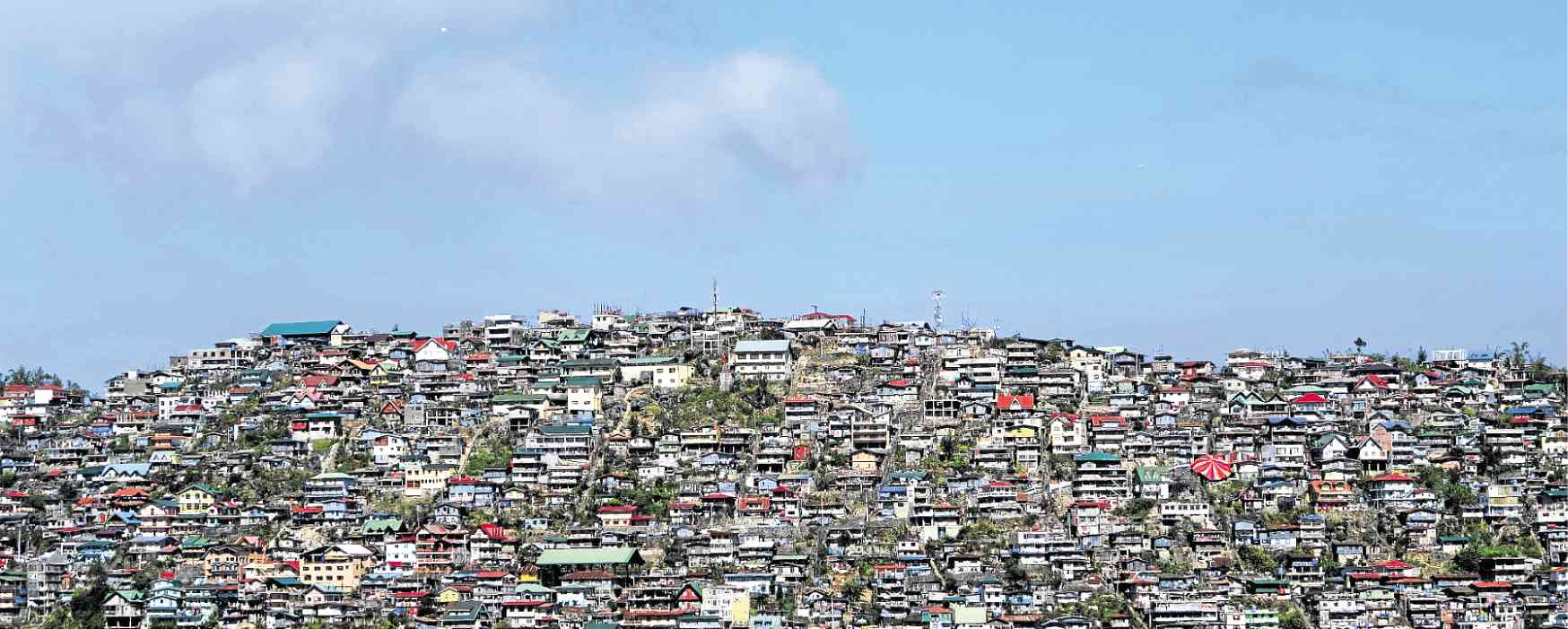
CROWDED As Baguio City continues to attract migrants and businesses, the summer capital has to also find solutions to growing problems of waste generation and disposal. —EV ESPIRITU
BAGUIO CITY—Saying conventional waste-to-energy plants are “lazy solutions for politicians,” a zero-waste advocate told Baguio residents to set up community operations to collect and compost household organic waste to be used to grow backyard food.
Retired chemist Paul Connett also said the city should learn to repurpose trash and stop consuming more than what a household required while asking local manufacturers to find a better way of packaging goods without using too much plastic.
Residents were forced to store their kitchen waste after the Department of Environment and Natural Resources stopped the operations of the city’s fertilizer-making machines that were fed with organic waste.
The agency’s stoppage order was quickly lifted after the city government reaffirmed its plan to convert its decommissioned dump into an ecological park.
Composting areas
The machines were set up at the old dump and were processing a backlog of biodegradable waste. These had since been producing 189 tons of powdered fertilizer from 720 tons of biological waste each month.
Connett, who spoke at a Sunday forum at City Hall, said villages could handle kitchen trash collections themselves and put up composting areas for backyard gardens or urban farms.
They should improve and expand a local vermiculture system which harnessed earthworms to dissolve biological waste, he said.
Credited for leading a global campaign against the use of fluoride to treat municipal water systems, Connett advised residents not to wait for the government to set up systems that would convert waste into electricity, an option that had become popular due to mounting struggle with waste.
His book, “Zero Waste Solution,” examined the flaws of the business model for using garbage to produce energy, arguing that the value of electricity does not make up for the cost of running trash-fueled generators nor the loss of discarded products that could be recycled or repaired.
The city government had intended to put up a waste-to-energy thermal plant at an open pit mine in Itogon town, Benguet province, under an arrangement with a mining firm. —VINCENT CABREZA

